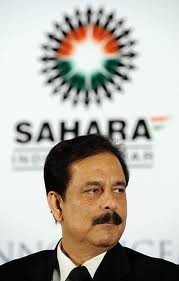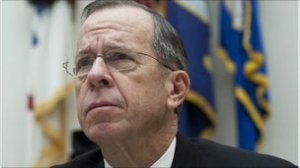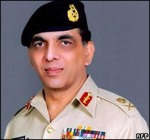I was going through an article published in Sunday Economic Times [May 01, 2011 to be precise] which was titled “Will inflation turn out to be a game-changer in India?”
It was nicely crafted and argued article by T K Arun, and all the arguments look relatively on rational side, but I have my apprehensions, which may be dubbed as irrational or idiotic. But I feel like sharing. The below is article I am talking about.
Will inflation turn out to be a game-changer in India?
If the RBI decides its foremost task is to stamp out inflation, never mind if it flattens the growth rate also in the process, that would be change we don’t want. However, inflation can also drastically change the rural landscape, boosting farm output and delivering millions out of poverty-provided the right policy initiatives are forthcoming.
Inflation is driven by, even if not confined to, food, particularly superior food: vegetables, egg, meat, milk, fish and lentils, vegetables and protein, in other words. Nor is this confined to India. Over the past 10 years, the least developed countries as a group have grown at an average rate of 7% a year. All of them witness a spurt in the demand for food. And for a variety of reasons ranging from prolonged drought to excessive rains, supplies have been disrupted, raising food prices across the board. Of course, the huge expansion in liquidity unleashed by the US and other developed countries, pumping speculative capital into all commodity markets, adding a thick layer of froth to the real pressures pushing prices upwards, plays its role as well. The net result: Thomas Malthus, who made the dire but fortunately erroneous forecast that the human race would proliferate faster than food production can grow, is back in fashion.
Beating Malthus is fait accompli. People not only have proliferated with abandon but also enjoy ever-improving standards of living, instead of straining hollow eyes into a darkening future of dwindling food supplies. However, beating Malthus promises to rise as a fresh challenge, an enormously profitable one. India has varied agroclimatic regions, capable of producing a great variety of crops. The challenge is to harness the potential and boost India’s farm output to feed not just a burgeoning India but also the rest of the world. It looks daunting but is, in fact, eminently doable.
Agricultural economist Ashok Gulati reports that the largest boost to farm income comes from investment in rural roads compared to other forms of agri-related investment. This offers a key insight that our policymaking obsession with the technical means of raising yields has ignored: farm production, too, is determined by the market. If you provide farmers easier access to markets for farm inputs and output, they would make use of that access to raise output and incomes. If the best seeds and fertiliser boost production in an interior village which cannot evacuate the surplus harvest to a market outside, the only result of the surplus would be to depress local prices and farmers’ incomes. On the other hand, if farmers can take their produce to buyers outside, their income would amplify.
A primitive system of state-mandated monopoly denies Indian farmers the freedom of choice in whom they sell to. The Agricultural Produce Marketing Committee Act must be scrapped. An organised, efficient supply chain must link farmers with urban consumers. This is what organised retail would do, if it is allowed to. Amul achieved this in the case of milk. New farmers companies or cooperatives should now be catalysed to accomplish this for other produce.
Observation of and by Blogger:
Please do not get surprised as reality is rarely known. People know, what I will call as a sucessfull propaganda, turning in Fad, leading to creation of a Mirage which looks like a Panacea to a very long [nearly seeming to be perpetual] Problematic Issue.
These days every body keeps talking about what ever he/ she feels will sell, without any consideration on its merit. Be it Organic Farming, Growing Jatropa for Bio fuel, Setting up of private mandies or scrapping of APMC Act.
Would someone like to comment on the situation that forced a Nation’s Goverment and its legislatures to formulate, pass and implement APMC Act, that today every one says should be scraped.
Inplace of just talking of implementing what the columnist T K Arun has argued in his article “Will Inflation Turn Out to be A Game Changer in India”; I would like to take my audiences a step ahead and deliberate on one of such models.
On the same lines as mentioned in paragraph above lets have some discussion on a very popular model — Acclaimed by Corporates as a Great Success Story. I do not think that every individuals who talks about it and considers it as a success has gone deeper in search of reality. So here it starts:
E – Choupal of ITC
Widely acclaimed as an ICT success story, it typifies the complete corporatization of the social enterprise model.
An initiative seeking to become the Wal-Mart of rural India, e-Choupal is a gateway to an expanding spectrum of commodities leaving farms and also selling to rural India urban oriented goods and services like FMCG, consumer durables and insurance services (Gurumurthy, 2009; Prahalad, 2006).
Based on a business model providing connectivity and services to a closed network of farmers through an entrepreneur whose role, interestingly, is projected by ITC as a “public office”, e-Choupal exemplifies the win-win problematique (Gurumurthy, 2009; Prahalad, 2006).
However a closer study of the model, from a development perspective, unpacking the socio-politics of the e-Choupal ecosystem, indicates a monopolistic control over the entire local agriculture ecology by a transnational corporation through the use of a captive ICT infrastructure, with minimal regulation and competition.
The e-Choupal hubs serve as sales outlets for agriculture and other products and services. Cutting off alternative systems, local middlemen and government services, e-Choupal locks in a large number of farmers into its network.
While the project has resulted in some increase in rural agricultural incomes through privatization driven efficiency improvements in the supply chain, e-Choupal underscores ‘trickle-down’ and individual enterprise at the village levels (Gurumurthy, 2009; Prahalad, 2006).
The average village shopkeeper/entrepreneur is bound to get affected as local demand for goods and services shifts to ITC and Choupal sagars. Needless to mention livelihood of traders/middlemen whose livelihood has been squelched through this model.
Further, the ‘DNA’ profile of the farmers acquired during the registration of e-Choupals has allowed ITC to determine and understand their buying behavior very closely.
This has allowed targeting, positioning and delivering goods and services to match their needs and wants continuously, succinctly called Customer Relationship Management (CRM) in marketing parlance.
This makes them more vulnerable to a shift from the present more or less sustainable existence to materialistic consumerism. Little awareness of their (farmer’s) rights may not guarantee total protection of the database and its unethical usage. This is where the government is expected to protect its citizens from such transactions.
However, the government has been changing slowly but surely towards a free market economy.
[The blogger, here is not arguing against or in favour of India moving towards a market economy. The above discussed issue has to do with not only business but ethics, morale, privacy, awareness and many other social issues.]
The information above has been picked from a Research Paper Titled E – Choupal – Hope or Hype. The Same can be accessed by Clicking here. ]
The Rest of the article continues……
Farmers require investment in infrastructure, not subsidy. Politics must shed its love for doling out subsidy and invest massively in harnessing water, roads, power and scientific storage of farm produce.
Policy must change, too, in allowing farmers access to global markets. The short-term distress this creates would be more than removed by the rise in incomes and employment that would result.
Farming would cease to be a punishment and become the biggest fighter against poverty. Inflation is indeed a horse that India’s beggars could ride their way out of poverty
Always Yours — As Usual — Saurabh Singh












Impressions of Visitor & Few Replies